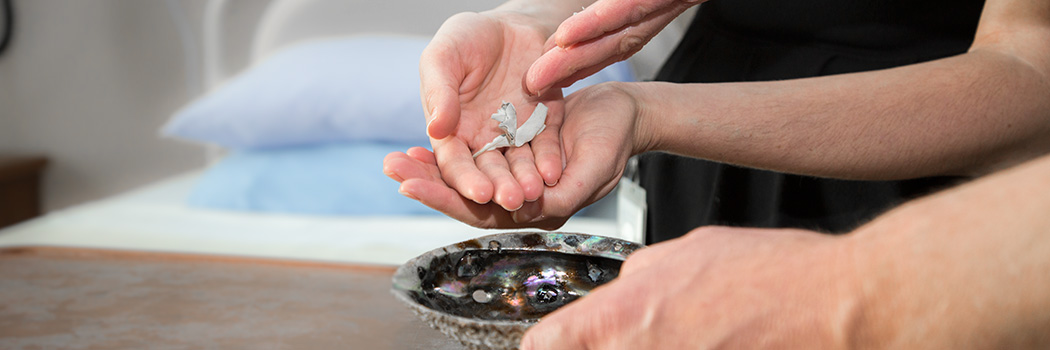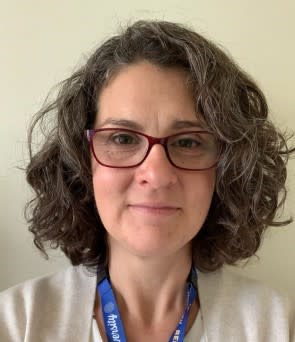Spiritual & Religious Care
Share This Page
Share This Page


Rooted in Healing and Hope
Spirituality can help you regain and maintain your health and cope with difficult experiences. It can help you find meaning, value and connection, especially during difficult times.*
Spiritual Care staff are integral members of Niagara Health inter-professional teams. They are members of the Canadian Association for Spiritual Care (CASC) and full time staff members are registered with the College of Registered Psychotherapists of Ontario (CRPO). They work with patients, families, staff and volunteers. You don’t have to be religious to benefit from spiritual care. We strive to support all types of spiritual expression: religious practice, personal relationships, artistic creation, a connection to nature and more.
To learn more about Spiritual Care, please visit Canadian Association for Spiritual Care (CASC/ACSS)
You are invited to contribute to your own medical record, providing information that local research has shown to be important to patients and health care providers alike.
While in hospital, please ask a Spiritual Care Practitioner to assist in filling out the form.
Or, you can download the Spiritual Self Assessment Tool and present it to a member of your care team.
Clinical Psychospiritual Education (CPE) is an experience-based approach to learning spiritual care which combines the practice of spiritual care giving with qualified supervision and group reflection. This dynamic and integrative education model assists persons in achieving their full potential in the practice of spiritual care.
The program is for:
The next offering of CPE at Niagara Health is September 2024 - April 2025. Deadline to apply is April 8, 2024.
For more information, please contact Trish Archibald, Provisional Supervisor Educator for CPE at Niagara Health at Trish.Heidebrecht-Archibald@niagarahealth.on.ca , 905-378-4647, ext. 43105.
*With thanks to the Spiritual Care Department, University Health Network, Toronto, for permission to adapt some of their communications.
Nathan.Kendall@niagarahealth.on.ca
905 378-4647 ext. 32381
 Nathan is the Manager of Spiritual and Religious Care at Niagara Health and Spiritual Care Practitioner at the Niagara Falls and Fort Erie sites. Nathan is a graduate of Niagara Health’s Spiritual Care Residency in 2019, and of Martin Luther University College with a Master of Arts (MA) in Spiritual Care and Psychotherapy. Nathan brings an eclectic approach to his practice by using his gifts as a musician and his experience working as a mental health counsellor in the community. Nathan is an associate member with the Canadian Association for Spiritual Care (CASC/ACSS) and a Registered Psychotherapist with the College of Registered Psychotherapists of Ontario (CRPO).
Nathan is the Manager of Spiritual and Religious Care at Niagara Health and Spiritual Care Practitioner at the Niagara Falls and Fort Erie sites. Nathan is a graduate of Niagara Health’s Spiritual Care Residency in 2019, and of Martin Luther University College with a Master of Arts (MA) in Spiritual Care and Psychotherapy. Nathan brings an eclectic approach to his practice by using his gifts as a musician and his experience working as a mental health counsellor in the community. Nathan is an associate member with the Canadian Association for Spiritual Care (CASC/ACSS) and a Registered Psychotherapist with the College of Registered Psychotherapists of Ontario (CRPO).
Trish.Heidebrecht-Archibald@niagarahealth.on.ca
905 378-4647 ext. 43105
 Trish Archibald is a Certified Spiritual Care Practitioner providing care to in-patients and their families at the Marotta Family Hospital in all areas other than Mental Health and Oncology. Trish is both a Provisional Supervisor Educator for Clinical Psychospiritual Education (CPE) for Niagara Health and a minister in the Presbyterian Church in Canada. She is a member of the College of Registered Psychotherapists of Ontario (CRPO) and the Canadian Association for Spiritual Care (CASC/ACSS).
Trish Archibald is a Certified Spiritual Care Practitioner providing care to in-patients and their families at the Marotta Family Hospital in all areas other than Mental Health and Oncology. Trish is both a Provisional Supervisor Educator for Clinical Psychospiritual Education (CPE) for Niagara Health and a minister in the Presbyterian Church in Canada. She is a member of the College of Registered Psychotherapists of Ontario (CRPO) and the Canadian Association for Spiritual Care (CASC/ACSS).
Alex is the Spiritual Care Practitioner for all inpatient mental health units at the Marotta Family Hospital. Before joining our team, she worked as a psycho-spiritual practitioner at Hamilton Health Sciences at their regional trauma centre. Prior to that, she completed her spiritual care residency at St. Joseph’s Healthcare Hamilton West 5th psychiatric facility. She holds an MA in Cultural Studies from Trent University as well as a Masters in Theological Studies from McMaster Divinity College. She is an associate member with the Canadian Association for Spiritual Care (CASC/ASCC) and is currently working towards registration with the College of Registered Psychotherapists of Ontario (CRPO).
Terry has been a Spiritual Care Practitioner and Registered Psychotherapist with Niagara Health since 2019. He can be found at the Marotta Family Hospital providing spiritual care, psychotherapy/counselling, and crisis support to patients, caregivers, and staff. He primarily supports the Walker Family Cancer Centre, the Mental Health Units, and general inpatient medical units. Terry comes to us with a Master of Arts in Counselling and Spirituality from Saint Paul University in Ottawa, as well as clinical training and experience from the Saint Paul University Counselling Centre, The Ottawa Hospital Clinical Pastoral Education Program, and the Niagara Health Clinical Pastoral Education Residency. He is currently an associate member of the Canadian Association for Spiritual Care (CASC/ACSS), and he is a Registered Psychotherapist with the College of Registered Psychotherapists of Ontario (CRPO).
Laura.mulletkoop@niagarahealth.on.ca
905 378-4647 ext. 32385
 Laura is the Spiritual Care Practitioner at the Welland Site. Laura has a Master of Arts (MA) in Spiritual Care and Psychotherapy from Martin Luther University College and is a graduate of Niagara Health’s Spiritual Care Residency in 2019. Laura is passionate about caring for the emotional and spiritual health of people experiencing unexpected and complex medical situations. She brings experience in spiritual direction and retreat leading, and an interest in how mindfulness and creativity support wellbeing. She is an associate member of the Canadian Association for Spiritual Care (CASC/ACSS) and a Registered Psychotherapist with the College of Registered Psychotherapists of Ontario (CRPO).
Laura is the Spiritual Care Practitioner at the Welland Site. Laura has a Master of Arts (MA) in Spiritual Care and Psychotherapy from Martin Luther University College and is a graduate of Niagara Health’s Spiritual Care Residency in 2019. Laura is passionate about caring for the emotional and spiritual health of people experiencing unexpected and complex medical situations. She brings experience in spiritual direction and retreat leading, and an interest in how mindfulness and creativity support wellbeing. She is an associate member of the Canadian Association for Spiritual Care (CASC/ACSS) and a Registered Psychotherapist with the College of Registered Psychotherapists of Ontario (CRPO).
Niagara Health has a diverse group of trained, multi-faith, Spiritual Care Providers who respond to urgent Spiritual and Religious Care needs of patients, families, staff and volunteers. Our on-call team provide coverage during evenings and weekends. Please call switchboard at 905-378-4647 ext. 0 and ask for “Spiritual Care” if support is needed.
To contact someone from Spiritual Care, contact a staff member listed above directly or call the Niagara Health switchboard at 905-378-4647 and ask for Spiritual Care.
